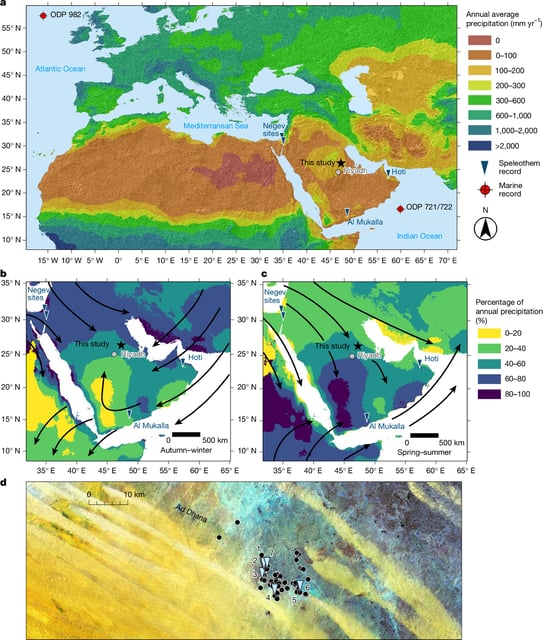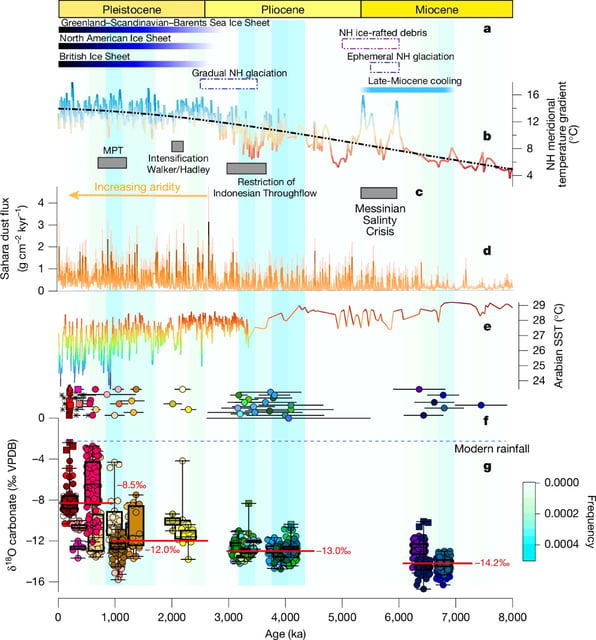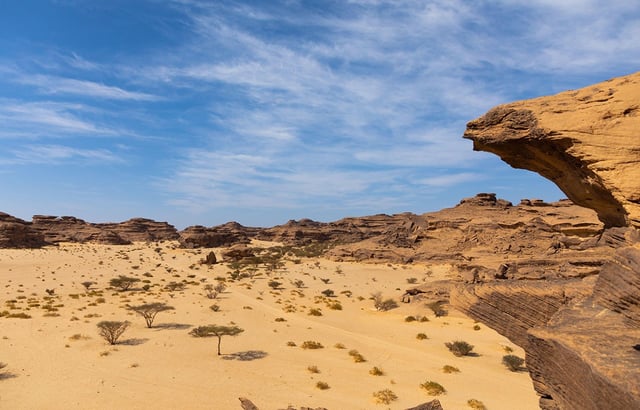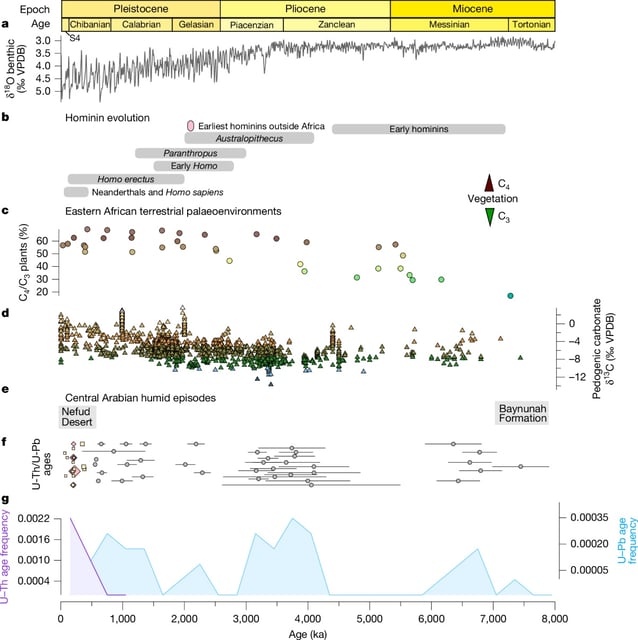Overview
- A study published in Nature reveals that the modern desert between Africa and Saudi Arabia was intermittently lush and green over an 8 million-year period.
- Researchers identified numerous humid phases that supported rivers, lakes, and water-dependent animals such as crocodiles, hippos, and elephants.
- Arabia served as a key biogeographic crossroads, facilitating mammalian and hominin migrations between Africa and Eurasia.
- The findings show that precipitation during humid intervals decreased over time, coinciding with a weakened monsoon influence and growing polar ice during the Pleistocene.
- This research, supported by the Saudi Heritage Commission, challenges traditional views of Arabia as a static arid barrier, highlighting its dynamic ecological history.



